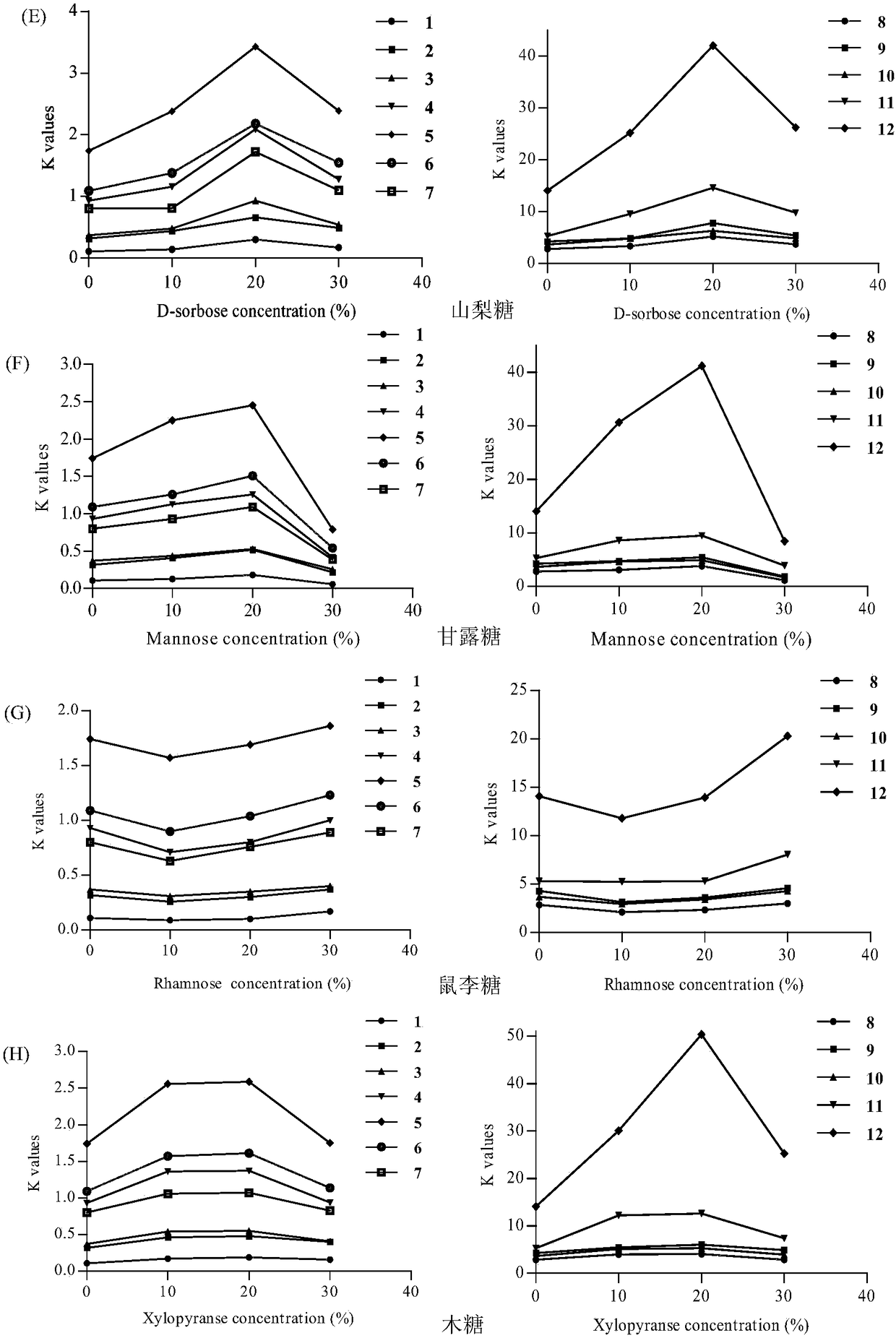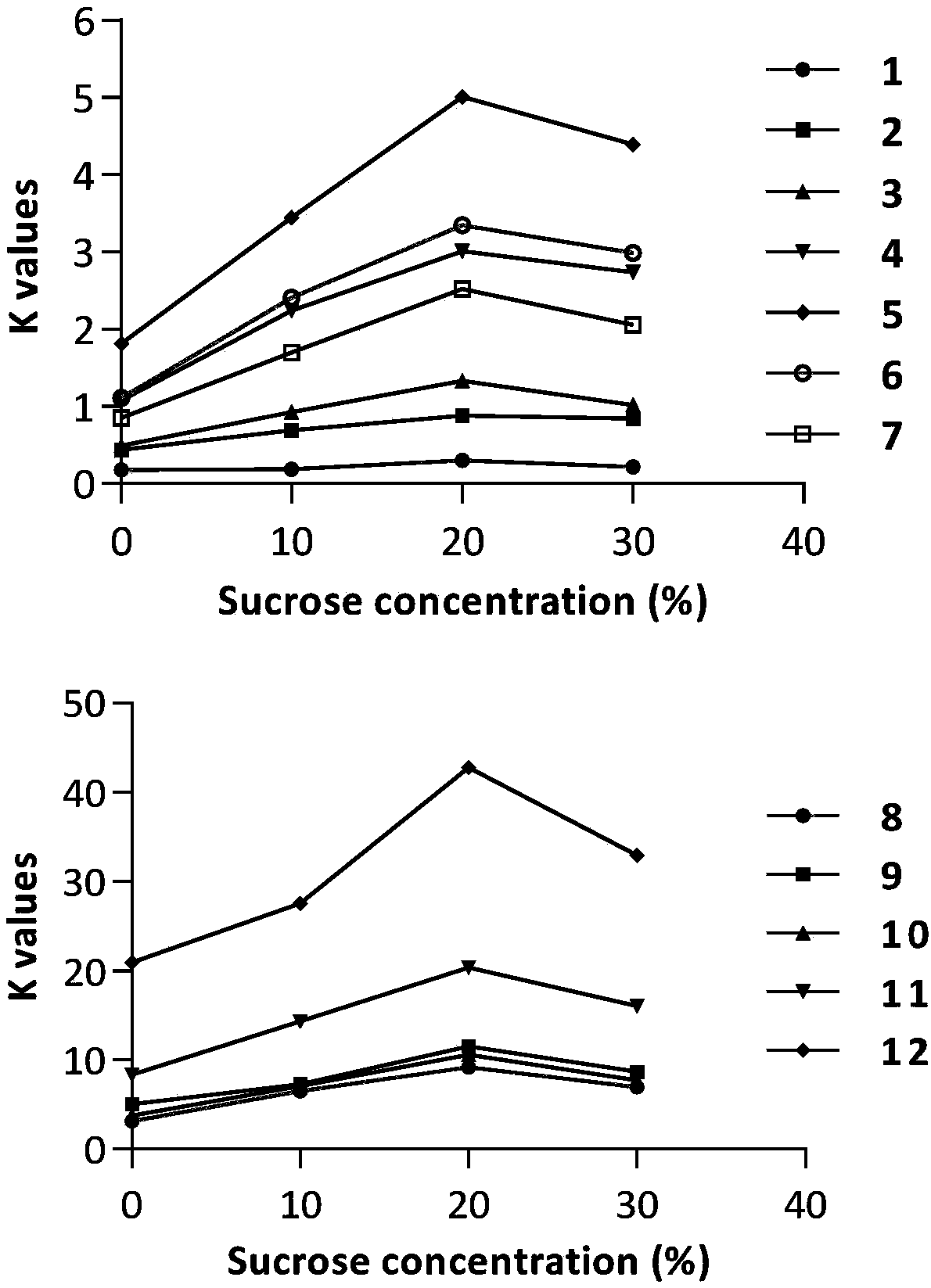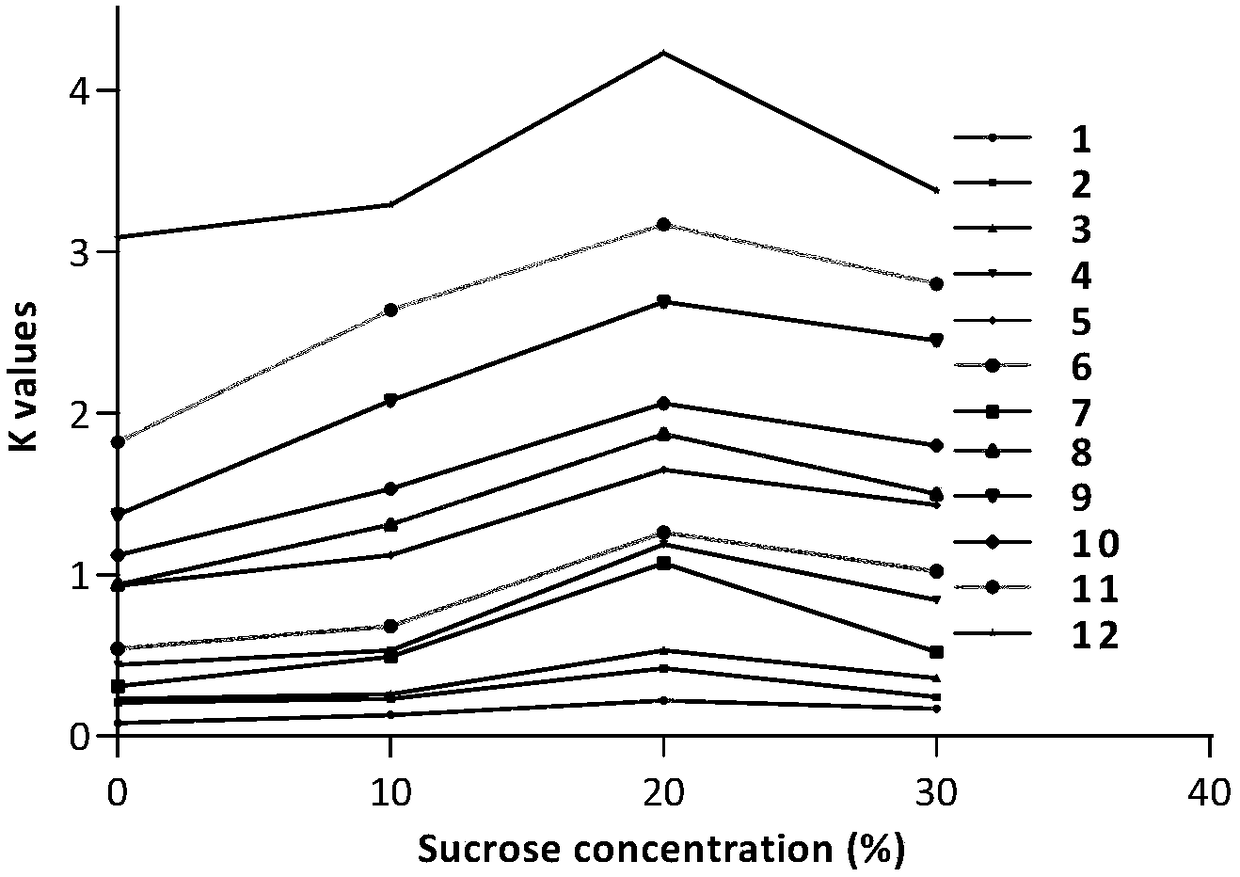A method that uses sugar to prefer reverse chromatography solvents
A countercurrent chromatography and solvent technology, applied in the field of countercurrent chromatography, can solve the problems of long time consumption and complicated solvent selection, and achieve the effects of reducing energy consumption, improving production efficiency, and facilitating automated production.
- Summary
- Abstract
- Description
- Claims
- Application Information
AI Technical Summary
Problems solved by technology
Method used
Image
Examples
Embodiment 1
[0022] The determination of the physical properties of flavonoids and podophyllotoxins comprises the following steps:
[0023] 1. Extraction and enrichment
[0024] First, the star anise lotus extract was directly subjected to column chromatography adsorption and enrichment, and then eluted with petroleum ether and ethyl acetate at a volume ratio of 2:1 to remove large polar impurities, and the eluate was collected. The physical properties of the compounds in the eluate were calculated according to ChemBioOffice Ultra 13.0, Cambridge Soft and are shown in Table 1. The crude product obtained when the volume ratio of petroleum ether and ethyl acetate was 2:1 was eluted, including hydrophilic podophyllotoxins and hydrophobic flavonoids.
[0025]
[0026]
[0027] Table 1. Physical Properties of Selected Compounds b
[0028] b Calculated according to ChemBioOffice Ultra 13.0, Cambridge Soft
Embodiment 2
[0030] The determination of the partition coefficient of flavonoids and podophyllotoxins in the n-hexane-ethyl acetate-methanol-water (4:6:4:6, v / v) system with sucrose as an additive comprises the following steps:
[0031] 1. Extraction and enrichment
[0032] Similar to Example 1, the star anise lotus extract was directly subjected to column chromatography adsorption and enrichment, and then eluted with petroleum ether and ethyl acetate at a volume ratio of 2:1 to remove large polar impurities and collect the eluate.
[0033] 2. Sugar solution preparation
[0034] Dissolving sucrose into certain quality water is prepared to form sugar solutions with mass concentration of 10%, 20% and 30% respectively.
[0035] 3. Determination of partition coefficients of compounds in star anise lotus in n-hexane-ethyl acetate-methanol-water (4:6:4:6, v / v) system with sucrose as additive
[0036] Add the crude star anise lotus to a 2mL centrifuge tube containing a two-phase system with a v...
Embodiment 3
[0038] The determination of the partition coefficient of flavonoids and podophyllotoxins in the n-hexane-ethyl acetate-methanol-water (5:5:5:5, v / v) system with sucrose as an additive comprises the following steps:
[0039] 1. Extraction and enrichment
[0040] Similar to Example 1, the star anise lotus extract was directly subjected to column chromatography adsorption and enrichment, and then eluted with petroleum ether and ethyl acetate at a volume ratio of 2:1 to remove large polar impurities and collect the eluate.
[0041] 2. Sugar solution preparation
[0042] Dissolving sucrose into certain quality water is prepared to form sugar solutions with mass concentration of 10%, 20% and 30% respectively.
[0043] 3. Determination of partition coefficients of compounds in star anise lotus in n-hexane-ethyl acetate-methanol-water (5:5:5:5, v / v) system with sucrose as additive
[0044] Add the crude star anise lotus to a 2mL centrifuge tube containing a two-phase system with a v...
PUM
| Property | Measurement | Unit |
|---|---|---|
| wavelength | aaaaa | aaaaa |
| quality score | aaaaa | aaaaa |
Abstract
Description
Claims
Application Information
 Login to View More
Login to View More - R&D
- Intellectual Property
- Life Sciences
- Materials
- Tech Scout
- Unparalleled Data Quality
- Higher Quality Content
- 60% Fewer Hallucinations
Browse by: Latest US Patents, China's latest patents, Technical Efficacy Thesaurus, Application Domain, Technology Topic, Popular Technical Reports.
© 2025 PatSnap. All rights reserved.Legal|Privacy policy|Modern Slavery Act Transparency Statement|Sitemap|About US| Contact US: help@patsnap.com



